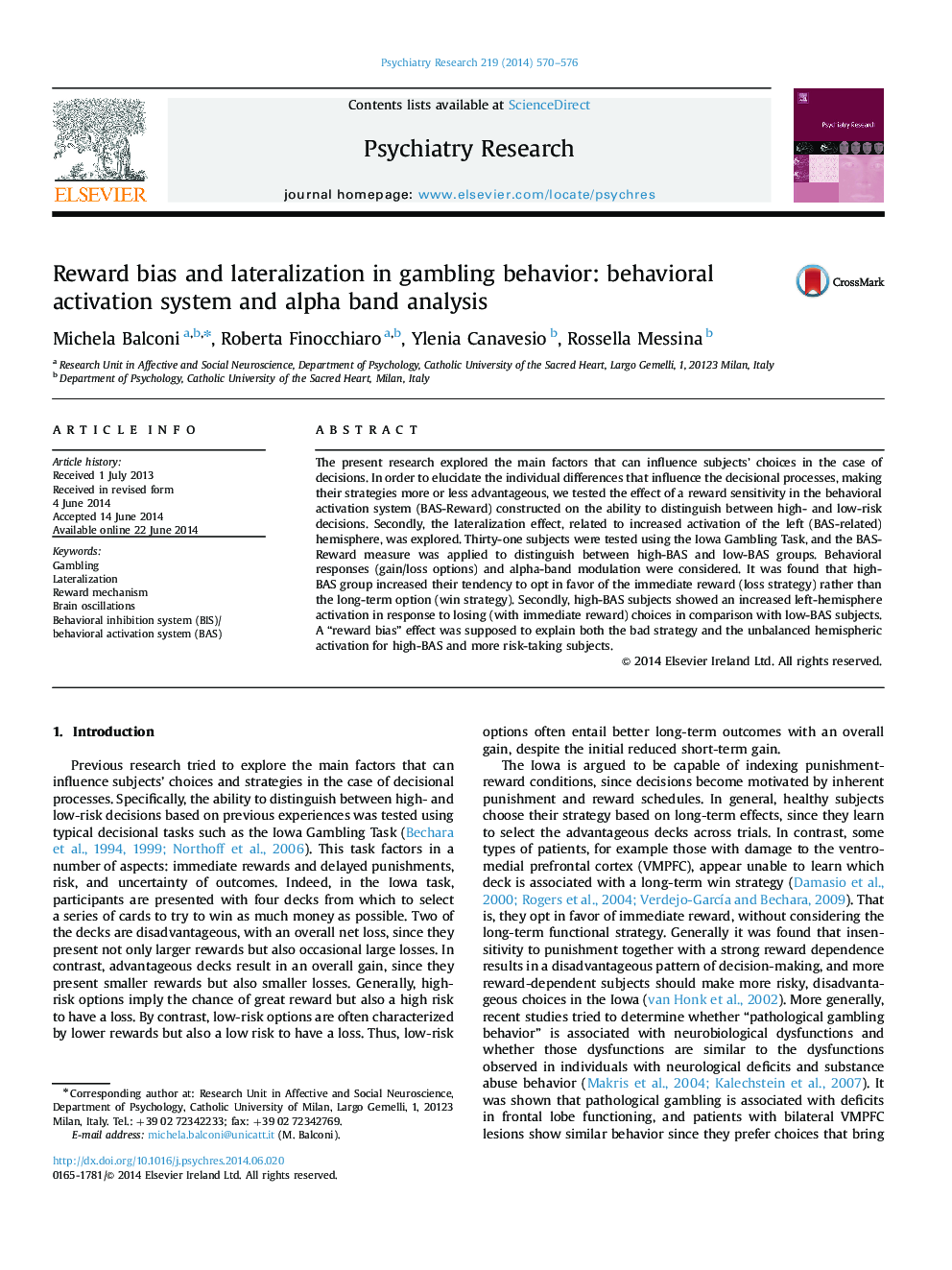| Article ID | Journal | Published Year | Pages | File Type |
|---|---|---|---|---|
| 332150 | Psychiatry Research | 2014 | 7 Pages |
•Alpha band asymmetry was observed in response to rewarding-condition.•High-BAS subjects showed reward-bias in Iowa.•Left hemisphere asymmetry was found for high-BAS.•Lateralization effect was explained by reward-bias.
The present research explored the main factors that can influence subjects’ choices in the case of decisions. In order to elucidate the individual differences that influence the decisional processes, making their strategies more or less advantageous, we tested the effect of a reward sensitivity in the behavioral activation system (BAS-Reward) constructed on the ability to distinguish between high- and low-risk decisions. Secondly, the lateralization effect, related to increased activation of the left (BAS-related) hemisphere, was explored. Thirty-one subjects were tested using the Iowa Gambling Task, and the BAS-Reward measure was applied to distinguish between high-BAS and low-BAS groups. Behavioral responses (gain/loss options) and alpha-band modulation were considered. It was found that high-BAS group increased their tendency to opt in favor of the immediate reward (loss strategy) rather than the long-term option (win strategy). Secondly, high-BAS subjects showed an increased left-hemisphere activation in response to losing (with immediate reward) choices in comparison with low-BAS subjects. A “reward bias” effect was supposed to explain both the bad strategy and the unbalanced hemispheric activation for high-BAS and more risk-taking subjects.
